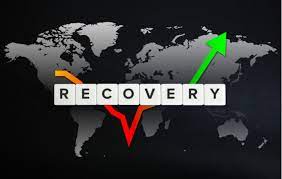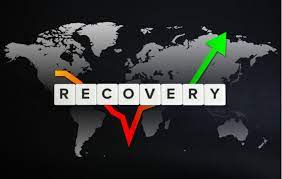
Global economic recovery form the pandemic hit is currently under threat due to an upsurge in new coronavirus variants and lack of access to vaccines in developing countries, warned the finance ministers of the 20 largest economies of the world - the G20.
This is the first time that the ministers of the G20 held a face to face meeting in the Italian city of Venice since the beginning of the pandemic. The ministers also took an important decision on endorsement of new rules designed to prevent corporates to shift their profits to tax havens.
This now will allow the top leaders of the G20 to give a final shape to impose a new global minimum corporate tax rate of 15% when they meet in Rime for a summit in October. That could also help countries get back billions of dollars in tax revenues from such multinationals which can refurbish the depleted treasuries due to the Covid-19 pandemic crisis.
Since the G20 talks in April, there has been an improvement of the global economic outlook primarily because of rollout of Covid-19 vaccines as well as economic support packages, said a final communiqué from the G20. The Group of 20 however also acknowledged the fragility of the global economic recovery because of the resurgence of pandemic outbreaks in many countries due to the emergence of variants of the coronavirus such as the fast-spreading Delta.
"The recovery is characterised by great divergences across and within countries and remains exposed to downside risks, in particular the spread of new variants of the COVID-19 virus and different paces of vaccination," read the communiqué.
While the G20 countries pledge to all possible policies for tackling the pandemic, no agreement could be arrived at in the summit for ways to avoiding implementing new restrictions on people, said the Italian hosts of the meeting.
"We all agree we should avoid introducing again any restriction on the movement of citizens and the way of life of people," said Italian Economy Minister Daniele Franco, whose country holds the rotating G20 presidency through to December.
No concrete measures were proposed at the G20 meeting for "equitable global sharing" of vaccines at the meeting even though the communiqué stressed support such sharing. The communiqué simply acknowledged a recommendation for $50 billion expenditure for new vaccine financing by the International Monetary Fund, World Bank, World Health Organization and World Trade Organization.
There is a wide difference in the levels and rates of vaccinations between the richer and the poorer countries. This gap has been described as a "moral outrage" by the WHO Director-General Tedros Adhanom Ghebreyesus, who added that this gap also threatens to upend the wider efforts for bringing the pandemic under control.
According to data, some of the richer countries of the world have managed to provide at least a single dose of Covid-19 vaccine to at least two thirds of their citizens, some of the poorest countries in Africa have managed to provide a single dose of vaccines to only about 5 per cent of their populations.
The inaction of the G20 over the vaccine gap between nations was described as "a lose-lose situation for everyone" by Brandon Locke, of the public health non-profit group ONE Campaign.
"Not only will it cost lives in poorer countries, it increases the risk of new variants that will wreak havoc in richer ones," he said.
(Source:www.ctvnews.com)
This is the first time that the ministers of the G20 held a face to face meeting in the Italian city of Venice since the beginning of the pandemic. The ministers also took an important decision on endorsement of new rules designed to prevent corporates to shift their profits to tax havens.
This now will allow the top leaders of the G20 to give a final shape to impose a new global minimum corporate tax rate of 15% when they meet in Rime for a summit in October. That could also help countries get back billions of dollars in tax revenues from such multinationals which can refurbish the depleted treasuries due to the Covid-19 pandemic crisis.
Since the G20 talks in April, there has been an improvement of the global economic outlook primarily because of rollout of Covid-19 vaccines as well as economic support packages, said a final communiqué from the G20. The Group of 20 however also acknowledged the fragility of the global economic recovery because of the resurgence of pandemic outbreaks in many countries due to the emergence of variants of the coronavirus such as the fast-spreading Delta.
"The recovery is characterised by great divergences across and within countries and remains exposed to downside risks, in particular the spread of new variants of the COVID-19 virus and different paces of vaccination," read the communiqué.
While the G20 countries pledge to all possible policies for tackling the pandemic, no agreement could be arrived at in the summit for ways to avoiding implementing new restrictions on people, said the Italian hosts of the meeting.
"We all agree we should avoid introducing again any restriction on the movement of citizens and the way of life of people," said Italian Economy Minister Daniele Franco, whose country holds the rotating G20 presidency through to December.
No concrete measures were proposed at the G20 meeting for "equitable global sharing" of vaccines at the meeting even though the communiqué stressed support such sharing. The communiqué simply acknowledged a recommendation for $50 billion expenditure for new vaccine financing by the International Monetary Fund, World Bank, World Health Organization and World Trade Organization.
There is a wide difference in the levels and rates of vaccinations between the richer and the poorer countries. This gap has been described as a "moral outrage" by the WHO Director-General Tedros Adhanom Ghebreyesus, who added that this gap also threatens to upend the wider efforts for bringing the pandemic under control.
According to data, some of the richer countries of the world have managed to provide at least a single dose of Covid-19 vaccine to at least two thirds of their citizens, some of the poorest countries in Africa have managed to provide a single dose of vaccines to only about 5 per cent of their populations.
The inaction of the G20 over the vaccine gap between nations was described as "a lose-lose situation for everyone" by Brandon Locke, of the public health non-profit group ONE Campaign.
"Not only will it cost lives in poorer countries, it increases the risk of new variants that will wreak havoc in richer ones," he said.
(Source:www.ctvnews.com)





